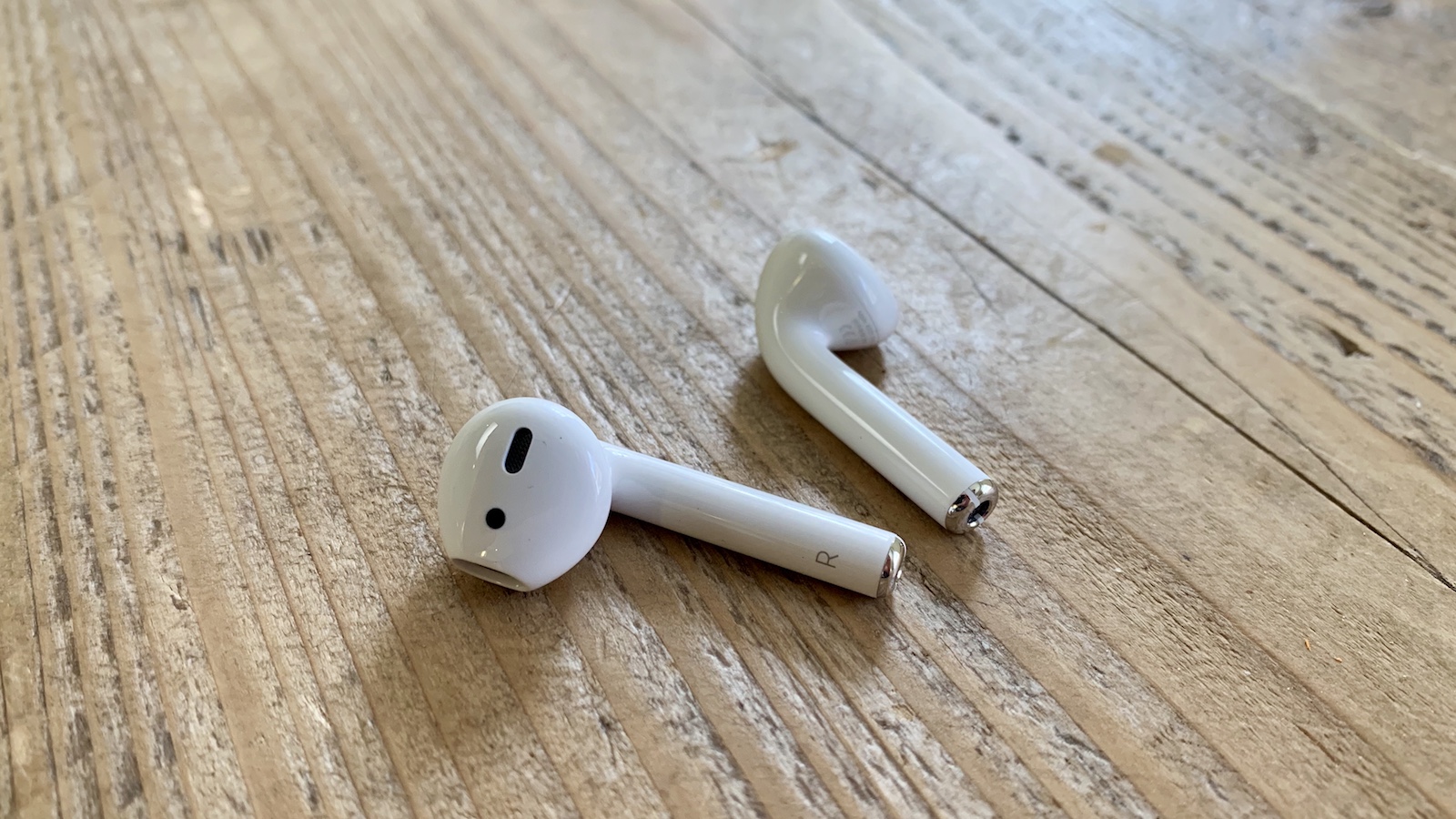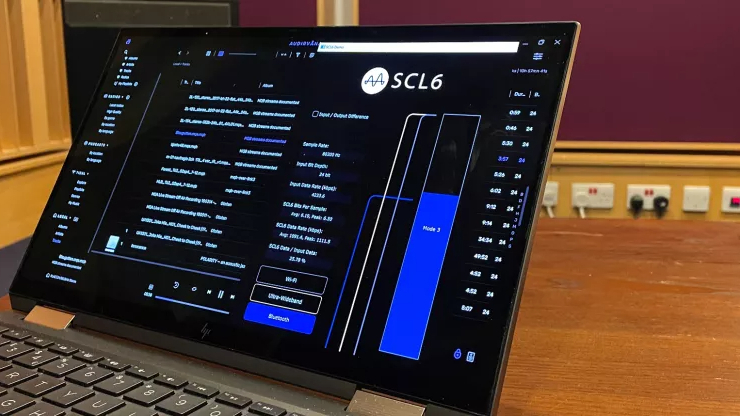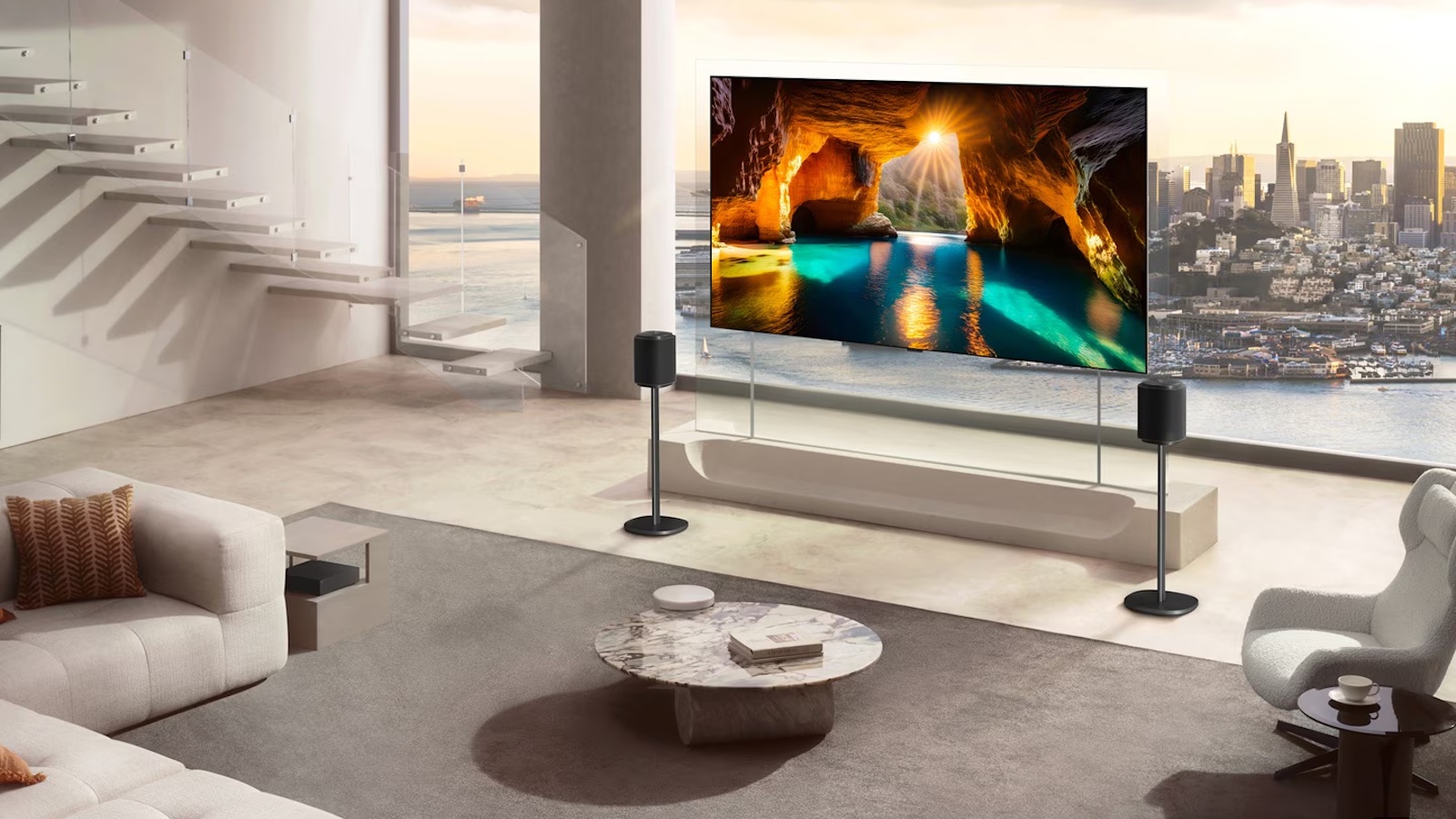Apple could supercharge its hi-fi offering with one simple step – and it involves MQA
MQA going on sale could be a boon for next-gen AirPods and iPhone owners

So here we are, four and some months on from when Master Quality Authenticated (MQA) Ltd announced it was going into administration and is looking for a buyer, and we’re yet to hear any further news.
And to be fair, in the world of company acquisitions, that’s not altogether unusual. But that hasn’t stopped myself and some of the other team members of What Hi-Fi? flapping our gums and wondering which company will, or even should, buy MQA Ltd. In that time, one name has consistently come up – Apple.
Before the troll hordes descend and I get mobbed in the comments section of this article for daring to suggest such a thing (we know a vocal number of readers don’t see the point of MQA), I do have a good reason for this sentiment.
To clarify, I don’t think Apple should buy the company because of MQA’s current streaming technology, which as our technical editor Ketan Bharadia pointed out, wouldn't add much at all to the iPhone maker’s current offering.
For people wondering what MQA is, the (very) short version is that it’s a technology designed to facilitate hi-res wireless audio streaming on compatible hardware. The most common place you’ll see it is on music streaming service Tidal, which supports MQA-CD on its higher subscription tier. Apple already has a similar solution in the shape of the Apple Lossless Audio Codec (ALAC).
Instead, I think Apple should buy MQA Ltd, or at least part of it, to get a gem that is still in development – SCL6.
MQA Ltd's SLC-6 could plug a hole
To catch you up, this is a new technology Ketan and our deputy editor, Andy Madden, got to hear in a demo earlier this year. Originally known as MQair, it’s the sixth generation of scalable code that MQA has developed, hence the name.
The latest hi-fi, home cinema and tech news, reviews, buying advice and deals, direct to your inbox.
It was being pitched as a next-generation and less lossy rival to the likes of the aptX HD and LDAC Bluetooth codecs, which are currently the vogue solutions to stream high-quality wireless music between a source and receiver.
Why do I think Apple should buy the tech despite it not being finished? Well, there are a few reasons.
First, because it would plug a gap in Apple’s portfolio. Apple’s ALAC doesn’t work on AirPods. Instead, they rely on Apple’s basic AAC codec, which in our experience is fairly lossy and not as high quality as aptX or LDAC. We’ve noted time and time again, including in our reviews of the AirPods Pro 2, HomePod 2 and AirPods Max (where higher-quality wireless transmission would be most beneficial in Apple's hardware lineup), how much of a weird hole this puts in Apple’s otherwise excellent hi-fi offering.
As you’ll see in our how to play hi-res lossles audio on an iPhone guide, the hole is a key reason you need extra hardware, like Apple’s Lightning-to-USB adapter and an external DAC, to get the best hi-res experience from a phone and headphones. Such a wired set-up would still likely offer the very best hi-res sound even if better wireless transmission was on the menu, but a cable- and extra hardware-free option to offer the best combination of quality and convenience would be most welcome.

And, based on our time checking out a development version of SCL6, MQA’s codec could offer just that. This is because it’s been designed to work with pretty much every file type under the sun and scale, based on the strength and quality of the connection it's running on.
At our demo, we first-hand saw the codec react to the quality of the link between the sending device and the receiver, running at a lossy 200kbps before scaling to a lossless 20Mbps when the bandwidth increased. The results were so impressive our deputy editor went so far as to conclude in his SCL6 hands-on:
“Hearing the amount of information some codecs throw away due to compression was a bit of an eye-opener, as was the demo of the codec’s scalability – the number of steps it was able to go through was very impressive, as was its apparent ability to maintain the essence and authenticity of the original at the lowest data rates.
“It’s an interesting, thought-provoking technology that could have a big impact on wireless audio – all we need now are compatible sources and receivers so we can take it for a spin!”
Apple could run with it
The second reason I think this makes sense is that if any company in the world can make a new technology mainstream, solving Andy’s final point about SCL6, it is Apple.
Apple controls its entire ecosystem in a way no other company does. From the solder used in its motherboards down to the software running its iPhones, all the way up to how it tunes its HomePods' sound, Apple is the puppet master behind every aspect of its products and services portfolio. So if it wanted to deploy SCL6 holistically, it could.
On top of that, as one of the biggest tech companies in the world, if it chooses to push or adopt a new technology, it’s going to be used by a significant proportion of the population fairly fast. Just look at iPhones. Counterpoint’s latest phone sales data suggests nearly one in five people own an iPhone, so if Apple adopted it, hordes of people would have access to SCL6 fairly fast.
The third and final reason I think the move makes sense is that evidence suggests Apple’s hardware is already in a good position to take advantage of SCL6 and help the tech overcome its biggest shortcoming. Specifically, that a) it isn't finished, and b) SCL6 doesn’t currently support lossless high-res audio with Bluetooth, despite hints that will eventually.
Jez Ford from our sister publication down under, Sound & Vision, penned a great piece explaining that, as it stands, no version of Bluetooth is ready to support true lossless hi-res audio. This is why, even with its scalability powers, SCL6 doesn’t, even in test, work over Bluetooth connections in hi-res.
However, Bluetooth aside, SLC6 theoretically would work on Ultra Wide Band (UWB) – a wireless solution currently supported on most modern iPhones. In theory, UWB has the bandwidth and low energy consumption levels required to get wireless, lossless, hi-res audio working. This explains why the piece was titled, "Is UWB the next Bluetooth?"
One of the main reasons it hasn’t appeared on headphones is due to a phenomenon called body blocking which can cause signal interference and dropouts when UWB is implemented as the connection standard for things like phones and headphones.
But, as noted by Jez, there are numerous UWB antenna solutions in the works, including some from AntennaWare (which employs Jonny McClintock, one of the Godfathers of aptX Bluetooth) that aims to get around this problem.
With this in mind, and considering Apple already uses the tech on modern iPhones, I can’t help but believe that now is the perfect time for Apple to snap up SCL6 and lead the way for true lossless, hi-res, wireless audio. Even if it doesn’t, SCL6 would still be a huge boon for its home listening offering over wi-fi, based on our early listening session.
And that’s why I think Apple is in a prime position to buy MQA and use its next-generation codec to take its hi-fi sound to the next level.
More:
These are the best wireless earbuds we've personally tested
Check out our curated pick of the best music streaming services
These are the best smart speakers we've tried and tested

Alastair is What Hi-Fi?’s editor in chief. He has well over a decade’s experience as a journalist working in both B2C and B2B press. During this time he’s covered everything from the launch of the first Amazon Echo to government cyber security policy. Prior to joining What Hi-Fi? he served as Trusted Reviews’ editor-in-chief. Outside of tech, he has a Masters from King’s College London in Ethics and the Philosophy of Religion, is an enthusiastic, but untalented, guitar player and runs a webcomic in his spare time.
